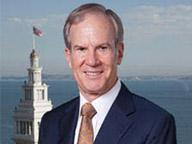Business and Policy Leader Events
—
NYU Stern's Center for Sustainable Business: Jerome L. Dodson Talk
—

On Tuesday, December 6, NYU Stern’s Center for Sustainable Business welcomed Jerome L. Dodson, founder and president of Parnassus Investments for a talk entitled, “Market-Beating Performance.”
Business and Policy Leader Events
—

On Tuesday, December 6, NYU Stern’s Center for Sustainable Business welcomed Jerome L. Dodson, founder and president of Parnassus Investments for a talk entitled, “Market-Beating Performance.”






















